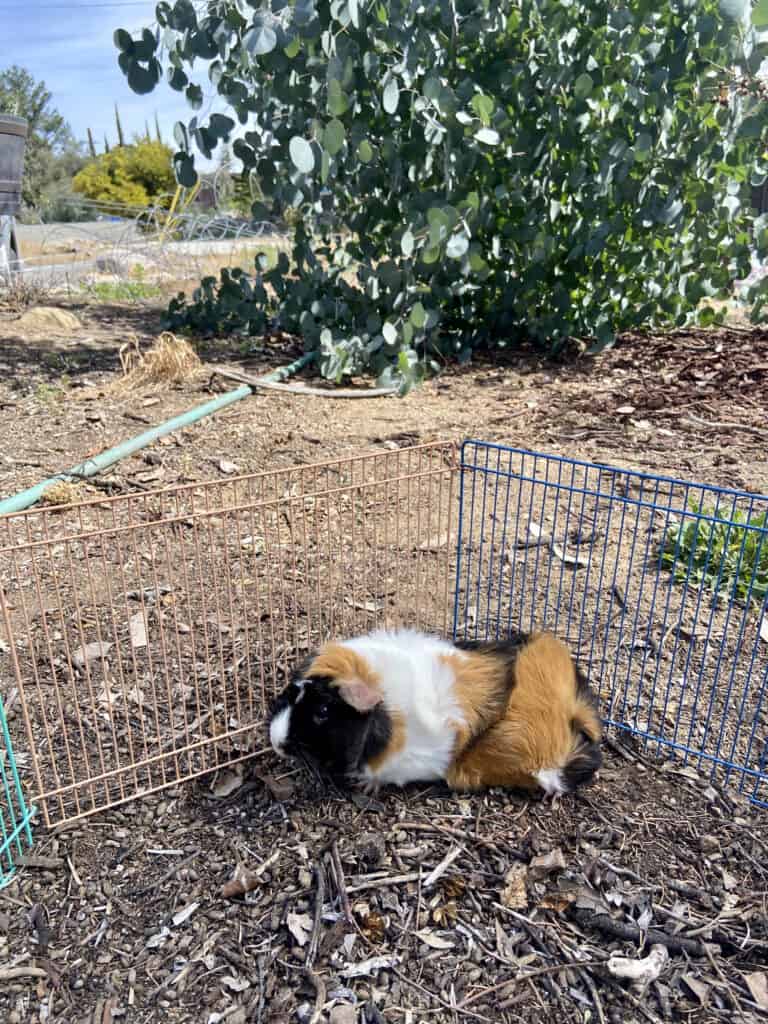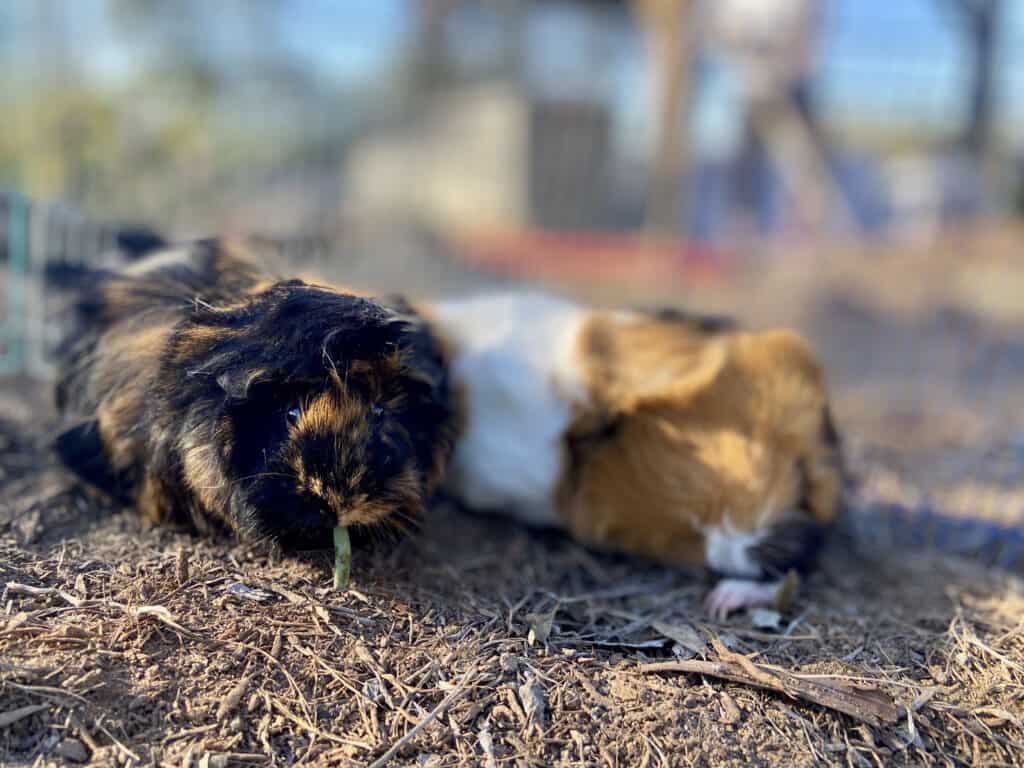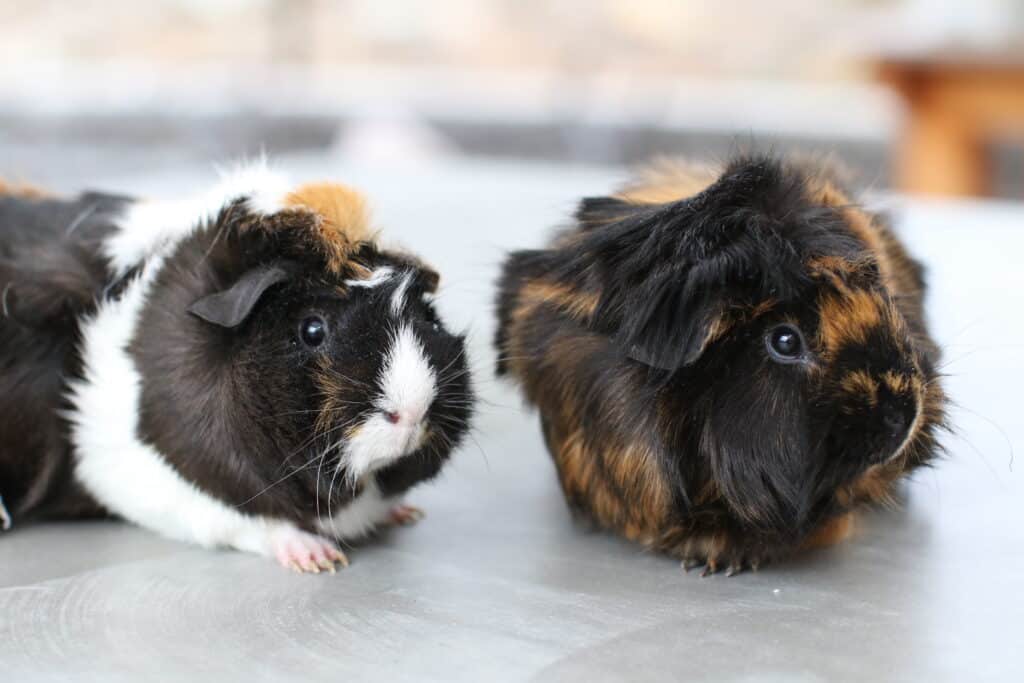As an Amazon Associate we earn from qualifying purchases.
Can Guinea Pigs Get Worms? This is a question that many people have, and the answer is yes, Guinea Pigs can get worms. Several worms can infect Guinea Pigs, some of which can be fatal. In this blog post, we will discuss the different types of worms that can affect Guinea pigs and how to prevent them from getting sick.
What Are Worms?
Worms are internal parasites that live in the intestines of animals. Worms belong to a group of animals called helminths, including flatworms and tapeworms. Many different types of worms can infect animals, including Guinea Pigs. The most common type of worm that affects Guinea Pigs is the cecal worm (also called the caecal worm).

Types Of Worms
There are four main types of guinea pig worms and guinea pig mites that can infect Guinea Pigs:
- Cecal Worms: These are the most common type of worms found in Guinea Pigs. Cecal worms live in the cecum (a sac-like structure at the junction of the small and large intestine) and lay their eggs in the feces. The larvae hatch from the eggs and are then swallowed, where they mature into adult worms.
- Roundworms: Roundworms are a type of nematode (a roundworm). They range in size from 0.25 to 0.75 inches long and are white or light brown. Roundworms live in the small intestine and lay their eggs in the feces. The larvae hatch from the eggs and are then swallowed, where they mature into adult worms.
- Tapeworms: Tapeworms are flatworms that range from 0.25 to 20 inches long. They are white or pale yellow and have a segmented body. Tapeworms live in the small intestine and lay their eggs in the feces. The larvae hatch from the eggs and are then swallowed, where they mature into adult worms.
- Flatworms: Flatworms are a type of tapeworm. They range from 0.25 to 20 inches long and are white or pale yellow. Flatworms live in the small intestine and lay their eggs in the feces. The larvae hatch from the eggs and are then swallowed, where they mature into adult worms.
Symptoms Of Worms In Guinea Pigs
The most common symptom of worms in Guinea Pigs is weight loss. Other guinea pigs symptoms may include:
Diarrhea
This may be caused by the worms themselves or by the irritation they cause to the intestine. Diarrhea can lead to dehydration, which can be fatal.
Lethargy
Skin mites can cause fatigue and lethargy due to the loss of blood and nutrients they cause.
Anemia
Worms can cause anemia due to the loss of blood. Anemia can be fatal if left untreated.
Weight Loss
Worms can cause weight loss and mild skin inflammation due to the loss of blood and nutrients they cause.
Bloating
Worms can cause bloating due to the irritation they cause to the intestine.
If you notice any of these symptoms in Guinea Pigs, it is important to take them to the vet for a checkup. Worms can be very dangerous to Guinea Pigs and cause death if left untreated.
The best way to know if the Guinea Pig has worms is to take them to the vet for a checkup. The vet will be able to tell if Guinea Pig has worms by doing a physical examination and by testing a sample of their feces.
How Do Guinea Pigs Get Worms?
Guinea Pigs can get worms from eating contaminated food or water or from contact with infected animals. They can also get worms from their mother before they are born.
How Can I Prevent My Guinea Pig From Getting Worms?
The best way to prevent a Guinea Pig from getting worms is to keep them healthy and clean. Give them fresh vegetables and fruits daily, and clean their cage regularly. It would help if you took them to the vet for a checkup every six months.
How To Treat Guinea Pigs For Worms?
If a Guinea Pig has worms, the vet will prescribe a wormer. It is important to follow the vet’s instructions carefully when giving the Guinea Pig the wormer. Wormers are toxic to Guinea Pigs and can cause death if not used properly.

Guinea pigs are not as commonly infected with worms as cats and dogs. Therefore most people believe it is unnecessary to worm their guinea pigs regularly. Guinea pigs can acquire worms from almost any food they consume, so it’s good to clean produce before feeding them to reduce the chance of infection.
If guinea pigs have worms, they could lose weight, have diarrhea, lose their desire for food, or become bloated. Guinea pigs are virtually immune to worms; accordingly, you may have gotten the diagnosis wrong. If your guinea pig loses weight and has a decreased hunger, it may have overgrown teeth.
Losing appetite is a significant issue, so we recommend consulting with a veterinarian as soon as possible if this happens.
How To Give Prescribed Drugs To Guinea Pigs?
Most guinea pigs dislike taking drugs, so it’s best to mix the prescribed medication into their food. If you’re using a liquid wormer, mix it with some honey or syrup to make it palatable. You can also purchase pill pockets specifically for pets, making giving your guinea pig pills much easier.

Guinea pigs are social creatures, so it’s important to keep them with at least one other guinea pig friend. If your guinea pig is living alone, they may become depressed or anxious, decreasing appetite and weight loss.
If you think your guinea pig has worms, the best course is to take them to the vet for a checkup. The vet will be able to tell if your guinea pig has worms and prescribe the appropriate medication. Worms can be very dangerous to guinea pigs, so it’s important to treat them as soon as possible.
Final Thoughts
Guinea pigs are lovely pets, but they can be susceptible to worms. If you think your guinea pig has worms, it’s important to take them to the vet for a checkup. The vet will be able to prescribe the appropriate medication. Worms can be very dangerous to guinea pigs, so it’s important to treat them as soon as possible. Thanks for reading!